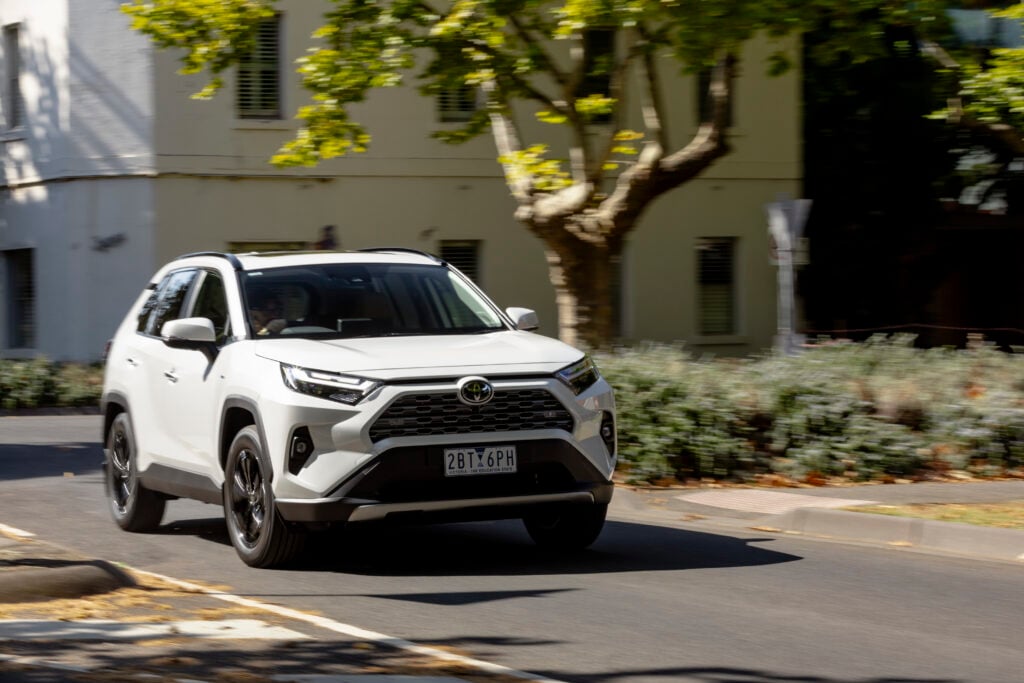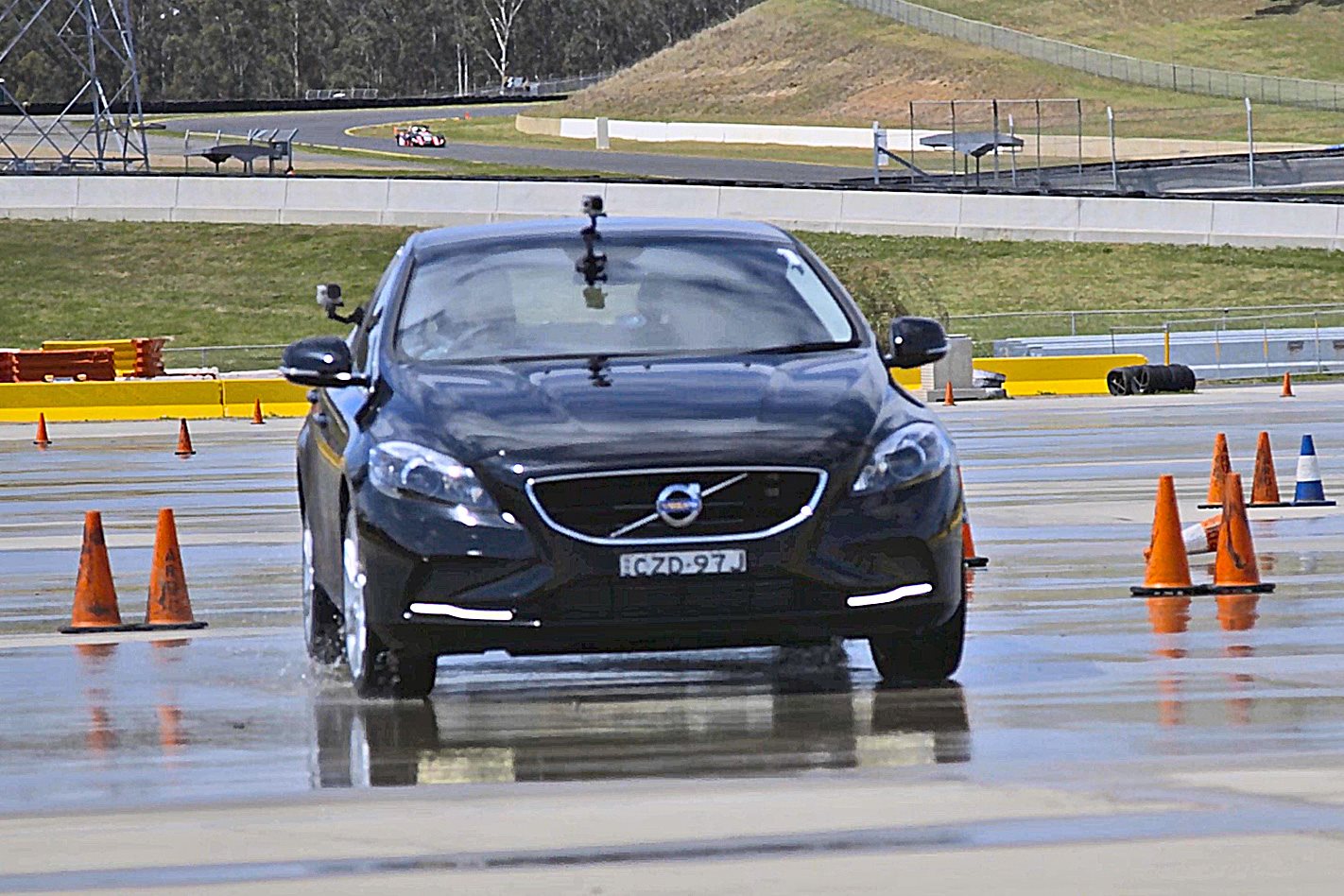
Anna: I’m a firm believer in further education. There’s no such thing as too much learning. But when it comes to advanced driving skills, I’ve often wondered the true value. There’s no doubt our young drivers need more professional driver training, and up-skilling has endless benefits. But when we throw overconfidence into the mix, and the hazards this often leads to on the roads, I wonder if this is the reality of advanced courses, particularly in performance drives. Then we have to consider the types of courses, defensive driving courses versus performance driving – one teaches how to cope with everyday driving situations, the others teaches the skills of elite drivers. Reality versus racing.
Ryan: Driver training is important. There’s no doubt about it. It doesn’t matter how many hours were spent next to a parent or older sibling while learning to drive, those sheltered lessons won’t necessarily deliver the broad range of conditions that can be condensed into one advanced driver program. Sadly, lots of drivers who have racked up a few years behind the wheel think those courses are beneath them. One lap riding shotgun with an experienced driver on a race track will show anyone there is always something new to learn, and that driving a car on the road barely scratches the surface of ultimate car control. That’s why I think a track driving experience is irreplaceable.
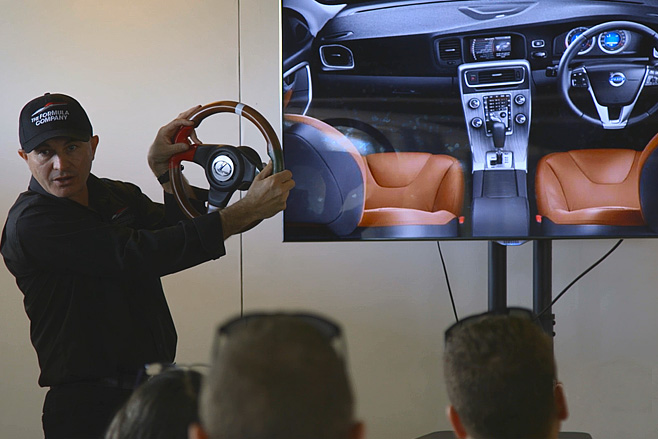
WHAT ADVANCED DRIVING COURSE DO YOU BELIEVE WILL BE MOST BENEFICIAL FOR PEOPLE?
Ryan: Any driving course is better than no driving course. If you’re unfamiliar with the way a car reacts in an emergency stop, or you want to feel like you know how to dodge an obstacle in the wet, then most advanced driver courses will suit you. Having said that, lots of people have encountered those things on the road and sometimes think they know it all. A decade or so of driving and many drivers, especially blokes, think they’re Michael Schumacher. But there is always more to master. Nothing will open your eyes to that like driving on a race track, and doing it with a driving coach is an incredible learning experience.
Anna: For the everyday driver, I think a defensive driving course is invaluable. The reality is that on road, most of us won’t be driving at racetrack speeds, and there is a lot more unpredictability and distraction on the urban-commute than a circuit. So for those looking to really improve their skills, a defensive course is a priority. I still see performance courses as a bit of fun, something to tick off the bucket list… like skydiving, or swimming with the sharks… only, not as terrifying.
WHY?
Ryan: Track driving requires a totally different level of car control to do it well, and it not only stretches your ability, it helps you realise your limits and teaches you to respect the car and the consequences of speed. You gain new appreciation for the job your tyres do in maintaining traction when really pushed, not to mention how subtle differences in your inputs can upset or complement a car’s willingness to go where you want it to. Track driving also works as a way to let off some steam. If you own a performance car and want to see what it will do without breaking the law and putting yourself at risk, this is the way to do it.
Anna: Like I said, I think defensive driving is more suitable training for the real world of driving. You learn skills that you are more likely to put to use on our roads – like the braking capabilities of your car, and how to set yourself up in the driver’s seat.
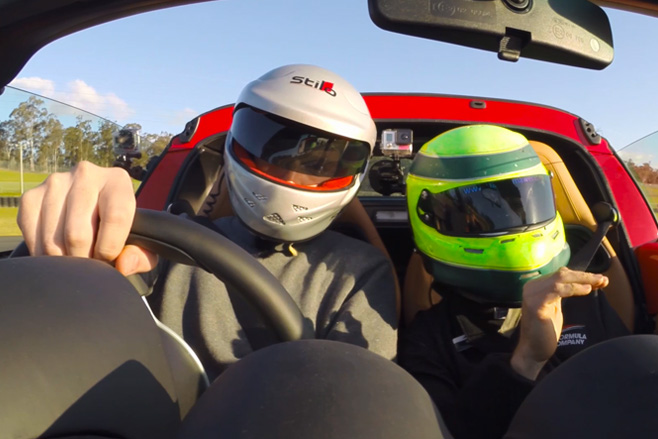
WHAT DID YOU LEARN AT YOUR COURSE?
Anna: Oh gosh, there was so much to learn. I think the defensive driving course I did gave a lot of information most drivers already know in theory, or at least they should. But what it did was put it into practice and gave students a hands-on example of the applications. The day started with theory; watching videos of real accidents to demonstrate what happens if you fall into bad habits like tailgating, driving with one hand, and speeding.
Then we moved on to a skidpan to get a visual understanding of things like braking distance, the value of seating positions, ABS, steering control – it put it into perspective, in a controlled environment, which sure beats learning it the hard way in ‘real life’. It really confirmed the bad habits that creep into our everyday driving – we don’t give them a second thought until someone points them out and explains why they are ‘bad’ habits. It’s quite frightening really.
Ryan: Admittedly, I have been lucky enough to do some track driving with instructors before, so a lot of my day on the circuit was about reinforcing the techniques I had learned in the past. I had never driven at this particular track, so the very fast and intimidating first corner required some building up to. I had to learn to trust the car – in particular the amount of grip from the tyres – in order to push through there at speed. I did learn a lot about proper braking technique for best turn-in. How quickly you let off the brake as you approach a corner can drastically affect how well the front of the car will steer through a corner.
ARE THERE ANY DOWNSIDES?
Ryan: Obviously you can’t drive at track speeds on the road, so relating the experience to the real world is not as easy as your typical driver training exercises. But if we assume the course will mostly be taken by people who have a firm grasp on the necessary techniques for safe driving on the road, I don’t think there’s a downside. Oh, except that you’ll definitely want to do it again for another hit of adrenaline!
Anna: I don’t know if there are any downsides. I still have some concerns about younger drivers becoming cocky after learning a few skills and all of a sudden considering themselves to be experts, but at the end of the course, I actually think the reality is more eye opening than anything else.
Cost is a big one, though. Advanced driving courses don’t come cheap, even though they’re worth it – you can’t put a price on a life. In fact, I actually think they should be compulsory and enforced by the law – in which case, the government should subsidize the course. Surely up-skilling our drivers will ultimately result in fewer collisions on our roads, meaning less road-toll spend and more importantly, less fatalities.
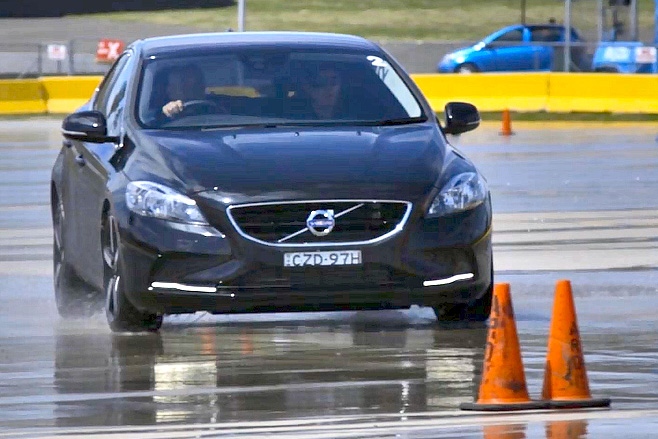
CAN YOU SEE ANNA/RYAN’S POINT OF VIEW NOW?
Ryan: Definitely. Young drivers or people lacking in confidence would be out of their depth on a race track. The advanced driver training course Anna took part in is a great way for most people to get to grips with a car and feel more prepared for the unexpected.
Anna: Sure. I think performance driving is a fun way for people to learn that there’s always something to learn. When it comes to driving, techniques and safety, there’s no such thing as a perfect expert. Even the greatest drivers are constantly learning new things, especially in the ever-changing automotive space. But I do think everyone should complete a defensive driving course as a priority, before up-skilling further in the more advanced courses.
VERDICT?
Ryan: Anything you do behind the wheel of a car with a professional sitting next to you is worth doing. But everyone starts at a different level. Organisations like The Formula Company offer a range of courses for that very reason, so it’s worth being honest about your abilities and working your way up. The main point is there is always more you can do to improve your driving, and that’s why we encourage everyone to get out there and give it a go. It may just save a life.
Anna: I agree with Ryan. At the end of the day, any time someone sets out to improve their driving skills and learn from a professional, particularly in a safe and controlled environment, is invaluable. It’s like my Dad always used to say when he was teaching me to drive: “Cars aren’t toys. They’re machines. And every time you get behind the wheel, it’s one of, if not the, most dangerous thing you’ll do that day.”




